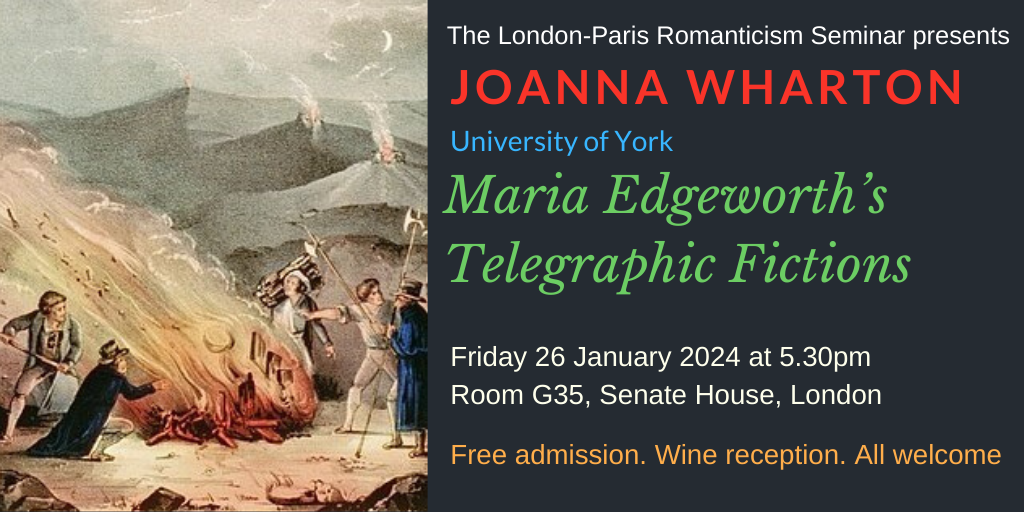
The next meeting of the London-Paris Romanticism Seminar will take place on Friday 26 January 2024 in the Bloomsbury Room (G35, ground floor), Senate House, University of London, starting at 5.30 pm. As our guest speaker, we are delighted to welcome Dr Joanna Wharton of the University of York, who will deliver a paper entitled Maria Edgeworth’s Telegraphic Fictions. This will be followed by a discussion and wine reception. The seminar will be chaired by Luisa Calè.
Joanna Wharton lectures in eighteenth-century literature at the University of York. She previously taught at Birkbeck, University of London and has also held a number of research fellowships, including an Early Career Fellowship at Lichtenberg-Kolleg, Georg-August-Universität Göttingen. She is the author of Material Enlightenment: Women Writers and the Science of Mind, 1770-1830 (2018), as well as articles and book chapters on Anna Letitia Barbauld, Maria Edgeworth and, more broadly, on literary and scientific culture in eighteenth-century Britain and Ireland. Joanna is currently developing a second monograph project, provisionally titled Insecure Networks: Cultures of Colonial Telegraphy, c.1794-1850, which examines the literary, material, and visual cultures surrounding the optical telegraph in British colonial contexts.
Regarding the topic of her paper, Joanna writes:
“This paper introduces Maria Edgeworth as a key player in the cultural brokering of the optical telegraph in Ireland. It explores the politics of telegraphic discourse in Ireland in the years surrounding the 1798 Rebellion and considers some of the ways in which Edgeworth’s Irish tales might themselves be understood as embodying telegraphic qualities. With a focus on the telegraph’s two main selling points – secrecy and speed – I argue that, through her allusive techniques and demonstration of the ‘art of deciphering’ Irish character, Edgeworth contends with the problem that the telegraph separated as it united. And, while telegraphy seemed to promise security, the imagined temporality of a technology which was, in reality, beset by delays and failures may have intensified Edgeworth’s apprehensions over the ‘surprising velocity’ and incendiary potential of Irish communications.”